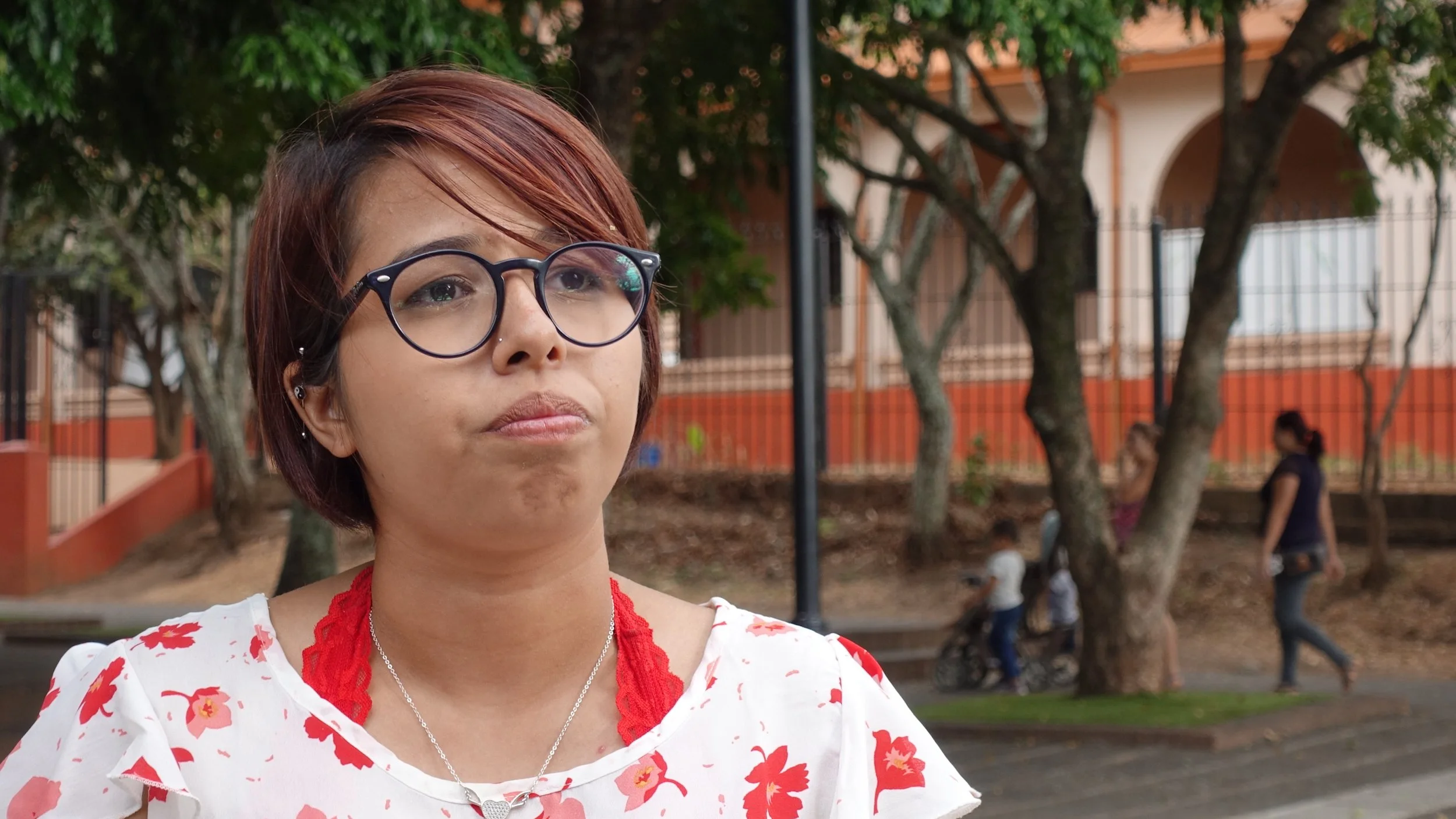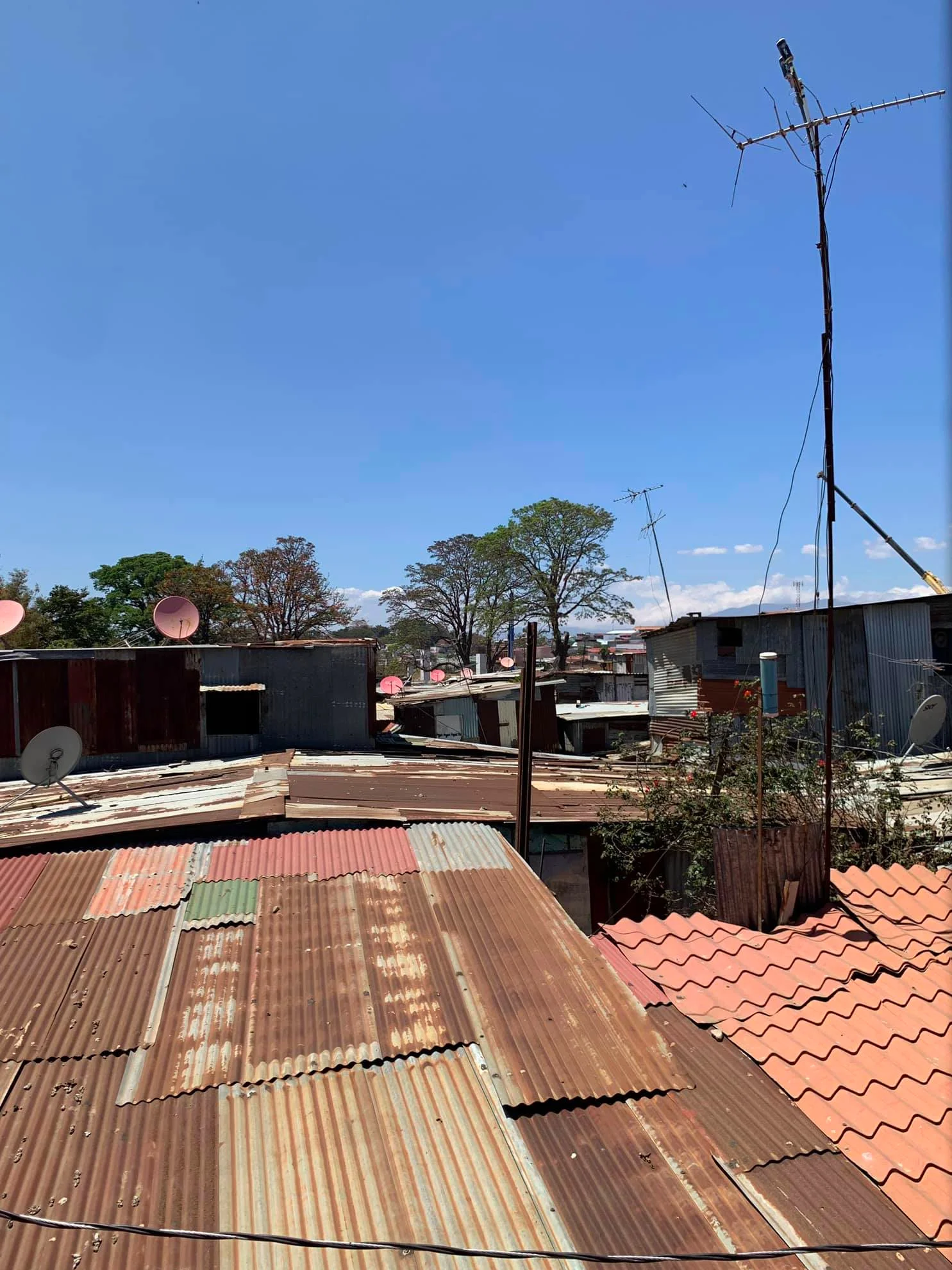The Costa Rican government has razed parts of the squatter community Triángulo de la Solidaridad in San José to make way for a new highway. Hundreds of the Nicaraguans who lived there have already been displaced.
Uneasy Neighbors
An influx of Nicaraguan refugees is testing
Costa Rica’s commitment to regional cooperation
By Caitlin Fish and Daniel DiNicola/Photos by Rachael Durand
With a stable democracy and no standing army, Costa Rica has made itself a center for conflict resolution and prevention. However, the population's response to an influx of refugees from Nicaragua within the last year has brought to light that not all Ticos are as accepting as westerners would like to believe.
Our team was witness to that bigotry while walking through the squatter community of Triángulo de la Solidaridad in San José. A man in the back seat of a truck shouted out insults identifying those living in the rows of shanty homes as Nicas, whores, and bastards.
Over the past year Nicaraguans in the thousands have fled their home country in search of asylum from the political unrest that became a part of everyday life in that country.
To hear those shouts of hate was chilling for the Nicaraguans we travelled with that day. Anyoleth Rizo Gutierrez, a 20-year-old political science student from Nicaragua who lived in Costa Rica from the age of 3 until she was in high school, is outspoken about her experiences witnessing racism in the country.
“For me personally, it brought back memories in general,” Rizo Gutierrez said, “When I got to high school and they come to you and are like you are horrible because you are Nicaraguan … a small part of the population is not aware of the reality we are living in here in Costa Rica.”
Any Rizo Gutierrez
Walking through Triángulo de la Solidaridad gives you a different perspective of the “paradise” narrative driven by western media about Costa Rica. Although it has the third largest economy in Central America, it is also a place where Nicaraguan refugees live in extreme poverty. To add to the issues facing Nicaraguans in San Jose, a highway is being built right over the Triangulo de Solidaridad community, and eviction notices have already gone out.
“I have always said Costa Rica has two faces,” Rizo Gutierrez said. “The one that is presented to Europeans or Americans that come to Costa Rica with lots of money ready to spend on tourism and the one that is presented to Nicaraguans or Venezuelans.”
““I have always said Costa Rica has two faces, the one that is presented to Europeans or Americans that come to Costa Rica with lots of money ready to spend on tourism and the one that is presented to Nicaraguans or Venezuelans.” ”
Just this April a report from the UNHCR said 55,000 of 62,000 who fled Nicaragua looked toward Costa Rica for refuge. This added to the community already established in Costa Rica by those who fled during the decade-long civil war in the 1980’s between when Ortega’s Sandinista government and the CIA-backed Contras.
Rizo Gutierrez says she believes that many Costa Ricans are weary of the number of refugees entering the country because they do not fully understand the circumstances Nicaraguans are facing.
“They say things like these people are going to steal our jobs, bring poverty to the country, give bad images to the country, but it’s not like that,” she said. “It’s not only people who are non-educated leaving the country. It’s lawyers, med students, whatever you can imagine.”
More than 55,000 Nicaraguans have sought refuge in
Costa Rica in
the last year.
For those that cannot go back having communities of fellow compatriots to socialize with is essential in dealing with the harsh reality of so much upheaval. One of those meeting places for Nicaraguans was La Merced Park in downtown San Jose.
According to the Tico Times this past summer on August 19 the park played host to an anti-immigration rally after a false social media posts spread stories of Nicaraguans burning Costa Rican flags. According to the Tico Times newspaper, chants could be heard of, “We want Costa Rica free of bastards,” and “Let’s fly the flag for our country and kill these Nicaraguans.”
Such statements did spark counter protests by Costa Ricans, in particular Carlos Sandoval, a University of Costa Rica immigrations researcher, whose viewpoint on the events at La Merced encouraged his decision.
“The xenophobic march was a turning point. Our whole image as a liberal nation changed,” he said to the BBC.
The upsurge in hostility toward Nicaraguans could also be related to media coverage of several high-profile murders, after which Nicaraguan suspects have been arrested. Although violent crime experienced a decline nationwide in 2018--583 homicides versus 603 the previous year--coverage of some of those murders, especially those of foreign tourists, centered on the possible involvement of Nicaraguan immigrants.
As many hope these anti-Nicaraguan sentiments will cool down, the government of Costa Rica has also responded announcing that it was working on new laws to combat hate speech and protect refugees from further intimidation -- though nothing has yet to pass.



